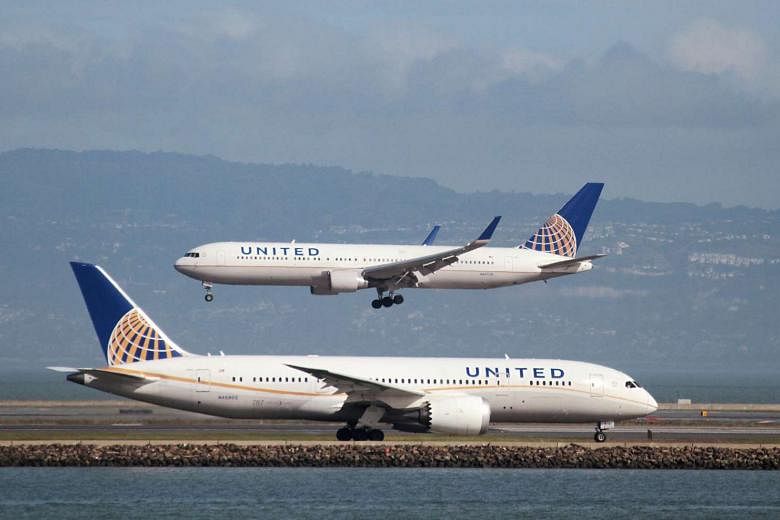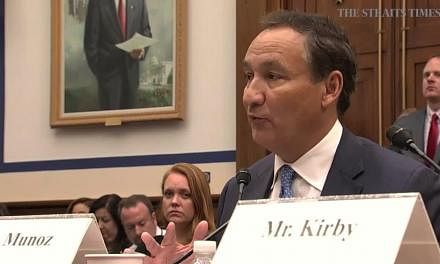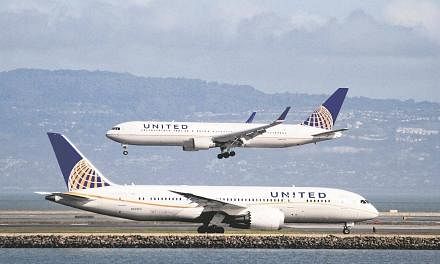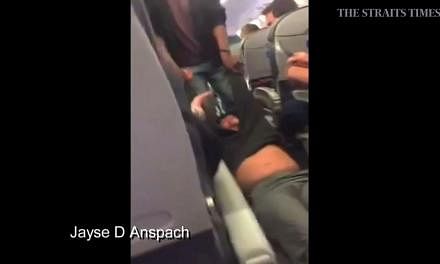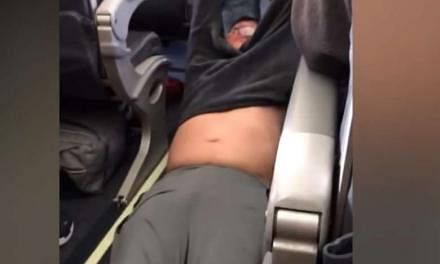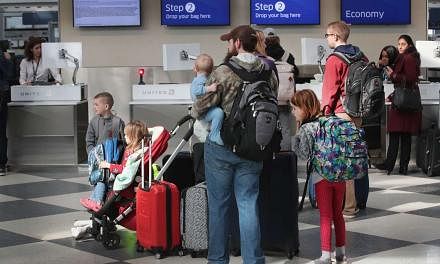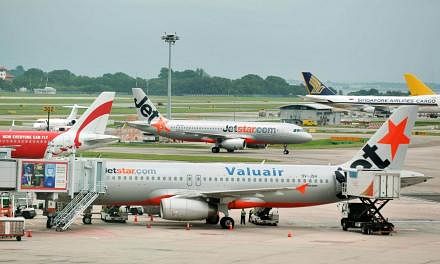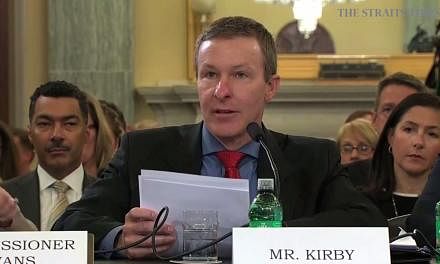A viral video of a passenger being dragged off an overbooked United Airlines flight has shocked and angered netizens and travellers.
Many have asked: Can airlines legally force someone to get off an aircraft because they sold too many seats? Unfortunately, yes, and it says so clearly in the "conditions of contract" that comes with every flight booking.
If it is any consolation, though, what happened on the United flight is extremely rare because, when passengers need to be bumped off, the negotiations typically happen at the check-in counters.
Overbooking is a common industry practice, and not just in the airline business. Hotels, for example, do it too. On busy routes, during peak travel seasons and when heavy discounts are offered to entice travellers, airlines will sell more tickets than there are seats. The simple reason for this is that 5 per cent to 15 per cent of passengers simply do not turn up for their flights. The tricky part is how many extra tickets to sell, and this is decided by applying algorithms that look at historical trends and traveller profiles.
No-shows, for example, tend to be higher in the United States and Europe. In Asia, people are more inclined to show up when they say they will, experts say.
Because of this, Asian carriers tend to be more conservative when it comes to overselling than their American and European counterparts.
No-shows are also more common on domestic compared to international flights, as travellers have less to lose with cheaper fares.
On flights that are popular with corporate travellers, there is also a higher chance of people not turning up because meetings may get postponed or cancelled.
Plus, it is less painful to bear the cost of missing a flight when someone else pays.
On such flights, airlines oversell more since they expect more people to not show up. Of course, this also increases the risk of being bumped off because predictions are ultimately just that.
When flights are overbooked, the first course of action is for airlines to seek volunteers with cash and other forms of compensation.
Laws stipulate compensation amounts in the US and Europe. Elsewhere, including in Singapore, the actual payout is negotiated between the airline and customer. In the US, travellers are entitled to get up to US$675 (S$948) if rescheduled to arrive within one to two hours of the original time, and up to US$1,350 if the delay is longer. Problems arise when airlines cannot find enough volunteers.
So, how to reduce the risk of being bumped off?
Confirm your interest to travel as early as possible with advance online or mobile check-in. Pick your seats and, where available, meals.
When flights are overbooked, airlines are more likely to approach travellers who have not done the confirmation.
Turn up early at the airport. If you are already in the transit hall with your boarding pass, you are probably safer than someone who turns up at the counter late.
When all fails and airlines have to force people off, it is good to be aware that the first to be inconvenienced are probably those who rarely fly the airline. Frequent customers always get better service.
Warning: This video contains vulgarity.
Also at risk: Those who travel alone, young people who may not mind hanging around for extra cash and those who bought the cheapest tickets.
Those flying point-to-point are also more at risk than travellers with connecting flights as it would be more troublesome for the airline to make alternative arrangements for the longer journeys.
Like it or not, there is always a risk of being bumped off a flight and little recourse for travellers when this happens.
But when airlines cross the line, as United did, it is they who will pay the price and lose business.


